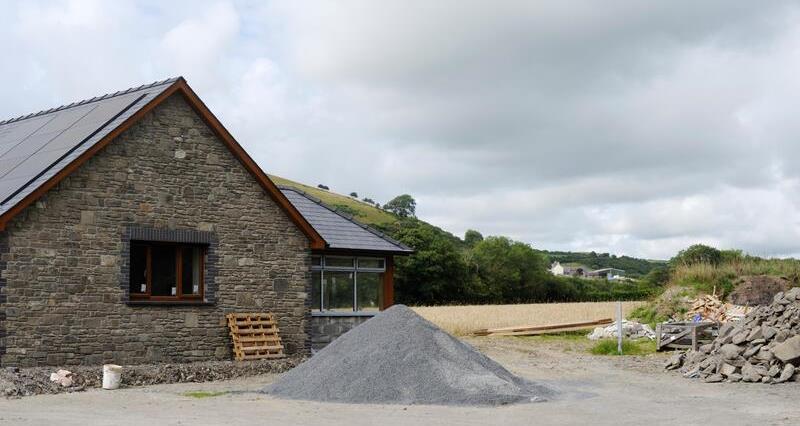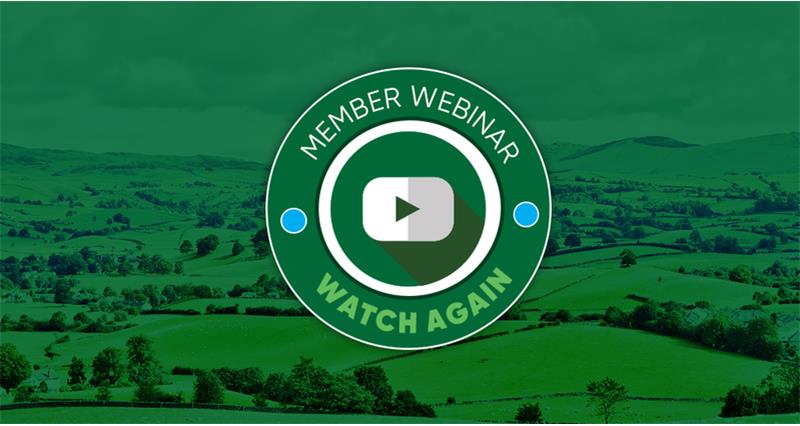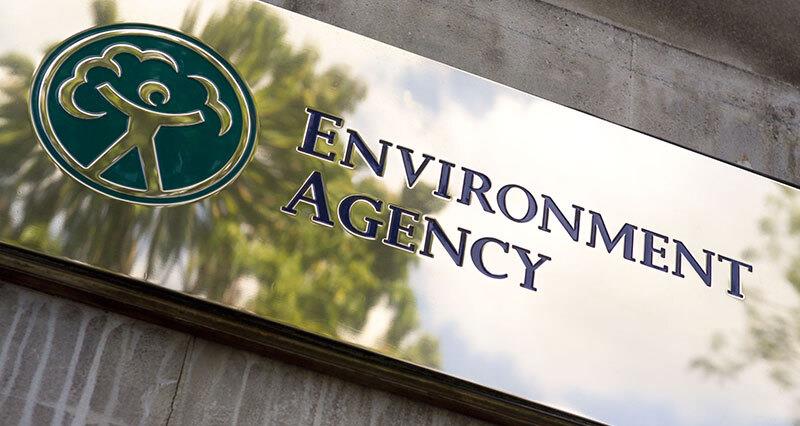The charges come into force today (1 July 2025) with key reforms including the introduction of registration and compliance charges for waste exemptions, a more risk-based approach to compliance monitoring, and specific provisions for the agricultural sector.
After today, any new or renewed waste exemptions will be subject to the charges.
In a win for the farming industry, a further two exemptions, T29 and T32 have been added to the list of 'common on-farm' exemptions which the NFU developed to reflect the activities most relevant to farmers.
“The NFU will continue to monitor the impact of these changes while advocating for a balanced regulatory approach.”
NFU Vice-president Rachel Hallos
NFU Vice-president Rachel Hallos said the Environment Agency’s introduction of charges for waste exemptions “marks a significant change for farmers and land managers across England”.
She added: “We do welcome the inclusion of additional 'common on-farm' exemptions, such as T29 and T32, to the list, which will help reduce the regulatory burden on many farming businesses.
“However, the introduction of charges represents a new financial consideration for many in the farming sector, particularly smaller-scale farmers who operate within tight margins.”
Common on-farm exemptions
Farmers will face a reduced compliance charge for the 17 ‘common on-farm exemptions’, which include activities like spreading waste to benefit agricultural land. The ‘common on-farm’ group is only available to farmers.
Farmers who require additional exemptions outside of the common group will pay the standard charges for non-farming businesses, but with savings for multiple registrations.
| Registration fee | Charge of £56 | Applicable to all, every three years |
| Common on-farm waste exemptions | Charge of £88 | Required every three years |
Total charge = £144 (for three-year registration period).
The full list of common on-farm exemptions is as follows:
| Waste exemption | Activity description |
| U1 waste exemption: use of waste in construction | Allows the use of suitable waste in construction as a recovery activity |
| U4 waste exemption: burning waste as fuel in a small appliance | Allows the use of waste plant material or untreated wood as fuel in a small appliance to produce heat or power |
| U8 waste exemption: using waste for a specified purpose | Allows the use of waste materials (that do not need treating) for a specific purpose to reduce the use of virgin or non-waste materials |
| U10 waste exemption: spreading waste to benefit agricultural land | Allows the spreading of specific waste on agricultural land to replace manufactured fertilisers or virgin materials (such as lime) to improve or maintain soil |
| U12 waste exemption: using mulch | Allows landscapers, farmers and growers to spread mulch as a protective covering onto land around trees, bushes or plants |
| U13 waste exemption: spreading plant matter to provide benefits | Allows the spreading of cut plant material at the place of production for weed suppression or to provide nutrients to the soil |
| U14 waste exemption: incorporating ash into soil | Allows the mixing of ash back into the soil to return some of the nutrients from the burnt crops and vegetation |
| U15 waste exemption: pig and poultry ash | Allows the mixing of ash from burning pig or poultry with slurry and/or manure and spreading it on farmland to provide the soil with nutrients |
| D1 waste exemption: depositing waste from dredging inland waters | Allows the deposit of dredging spoil on the banks of the water it was dredged from and treat it by screening and removing water |
| D3 waste exemption: depositing waste from a portable sanitary convenience | Allows the burial of waste from a portable toilet, to avoid long-distance transportation of small quantities of waste to sewage treatment works |
| D4 waste exemption: depositing agricultural waste consisting of plant tissue under a Plant Health Notice | Allows the deposit of diseased crops where they were grown when a Plant Health Notice has been issued, to reduce the risk of spreading plant diseases or pests |
| D6 waste exemption: disposal by incineration | Allows the disposal of small amounts of specific waste that have been produced on site in an incinerator |
| D7 waste exemption: burning waste in the open | Allows the burning of plant tissue and untreated wood waste from joinery or manufacturing in the open air |
| T1 waste exemption: cleaning, washing, spraying or coating waste | Allows treatment of waste packaging so it can be reused in its original form or becomes clean waste suitable for recycling |
| T23 waste exemption: aerobic composting and associated prior treatment | Allows the composting of small volumes of vegetation, cardboard and food waste to spread on soil to add nutrients or improve the structure |
| T29 waste exemption: carbon filtering non-hazardous pesticide washings | Allows you to treat non-hazardous pesticide washings by carbon filtration before disposing of them to land. |
| T32 waste exemption: treating waste in a biobed or biofilter | Allows you to treat non-hazardous pesticide washings in a biobed or biofilter. |
The EA has also published an update to its ‘Register your waste exemptions’ digital service, which allows users to edit their existing registrations without the need to contact the NCCC (national customer contact centre). The new functionality includes the ability to:
- de-register existing waste exemptions
- update your email address
- update your mobile phone number
- update your contact name
The EA is trying to make it easier for farmers when deciding what exemptions they do and don’t need. It allows them to self-serve, rather than ring up and put the request in writing.
Clear guidance and support needed
The EA has said the changes are designed to fund regulatory work targeting waste crime. "Waste exemption charges will allow us to fulfil our duties and deliver risk-based and proportionate compliance activity, focusing on those that are the greatest risk," the EA's report states.
Rachel Hallos said: “It’s crucial that the Environment Agency continues to work closely with the NFU and the wider agricultural community to provide clear guidance and support during this transition. This is so farmers fully understand their obligations and the practical steps they need to take to ensure a smooth implementation.
“The NFU will continue to monitor the impact of these changes while advocating for a balanced regulatory approach that supports sustainable farm management without imposing undue cost burdens on our members.”
Do I need to take action?
The changes affect everyone who operates waste exemption activities, and it is important that holders of waste exemptions make sure they can continue to operate without the need for a permit.
The changes involve correcting or clarifying waste codes and descriptions, restricting the amount of waste handled on sites with multiple exemptions registered, and removing some exemptions while others have changes made to their conditions.
Holders of waste exemptions will need to review their exemptions against the guidance and check if they still need them. They will also need to make changes to ensure they can comply with the revised exemptions, apply for an appropriate permit, or stop their waste activity.
More from NFUonline:


Watch again: Waste exemptions – changes in charges webinar
